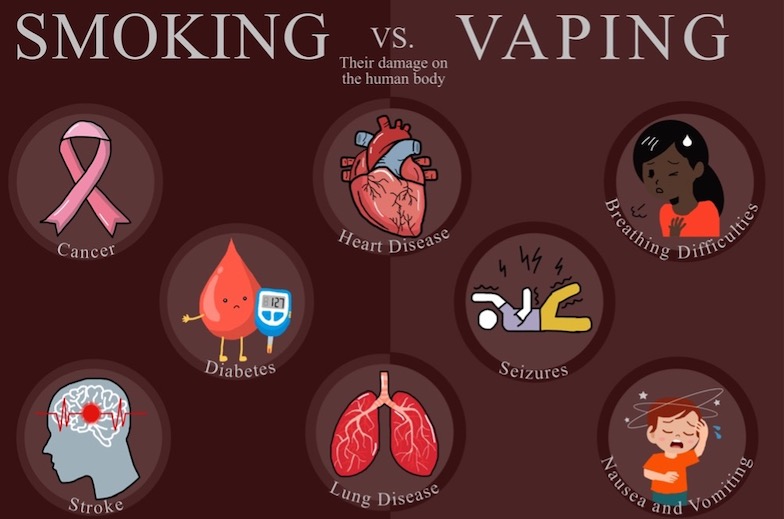Electronic cigarettes are not a healthy alternative to smoking in Qatar or elsewhere. They pose significant health risks due to their chemical composition and addictive nature.
Key Health Risks of E-Cigarettes
Nicotine Addiction: Most e-cigarettes contain highly addictive nicotine, which alters brain development in adolescents and sustains dependency in adults.

Toxic Substances: Vapor contains harmful chemicals including:
- Ultrafine particles causing lung inflammation
- Volatile organic compounds (e.g., benzene)
- Heavy metals (nickel, lead) from heating coils
- Flavorants linked to respiratory damage
EVALI Risk: Qatar has documented cases of E-cigarette or Vaping Product Use-Associated Lung Injury (EVALI), characterized by coughing, chest pain, and respiratory failure.
Misconceptions vs. Evidence
Not a Safe Alternative: While potentially less harmful than combustible cigarettes for adult smokers transitioning completely, e-cigarettes remain unsafe for non-smokers, youth, and pregnant women.
Gateway Effect: Young users in Qatar are 3x more likely to initiate tobacco smoking within 18 months compared to non-vapers.
Qatar’s Regulatory Position
All e-cigarette products containing nicotine are regulated as tobacco products. Their import requires Ministry of Public Health approval under Law No. (10) of 2016. Public vaping restrictions mirror traditional smoking bans.
Medical Consensus: Qatar’s Hamad Medical Corporation and global health authorities (WHO, CDC) affirm that e-cigarettes are not risk-free and discourage non-smokers from using them.










